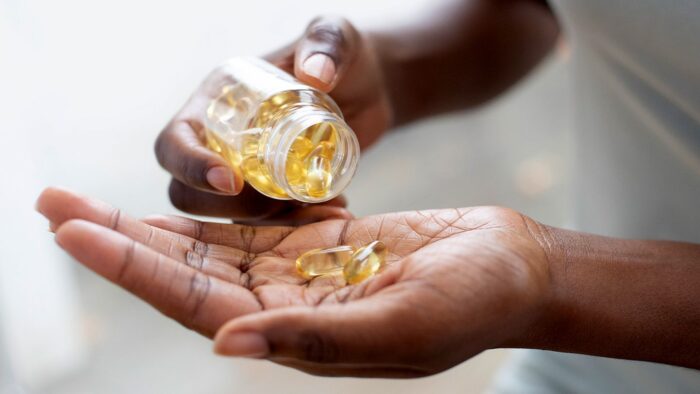There are many supplements on the market to treat digestive problems. These supplements can help you eliminate harmful bacteria from your gut and balance the microbiome.
However, your symptoms may improve or worsen depending on your body’s underlying imbalances. It is crucial to understand which supplements will work best for you and what to avoid.
Supplements containing natural herbs like senna or acai berries may be helpful in relieving symptoms. They are generally harmless, although some may have unwanted side effects, especially if they contain chemicals.
Another type of supplement that may be worth trying is an enzyme pill. The enzymes inside the pill may help in the digestion of certain foods. Some products contain multiple enzymes, such as psyllium and bromelain, and may also contain probiotics.
These supplements can be bought online. However, it is important to note that these supplements are not a cure for IBS, and you should talk to your doctor before starting a new treatment plan.
If you want to know whether IBS supplements are worth it, continue reading.
What Are IBS Supplements?

Source: healthline.com
Several different IBS supplements are available on the market. These supplements can help ease the symptoms of IBS and can be very helpful for some. The most important type of IBS supplement is fiber.
Fiber comes in many forms, and the best sources are fruits, vegetables, and whole grains. You can also take supplements that are rich in soluble fiber.
Some IBS supplements contain fish oils, which may reduce the symptoms of irritable bowel syndrome. These supplements contain omega-3 fatty acids, which are believed to have anti-inflammatory effects on the body.
Peppermint oil is another ingredient that may help relieve symptoms. It is believed to relax digestive tract muscles and decrease excessive contraction. It is also believed to be helpful for general bowel health.
Are IBS Supplements Worth It?

Source: pexels.com
There are various kinds of IBS supplements available on the market, each with varying effects on different people. Some improve symptoms, while others worsen them. The first step to treating IBS is a healthy gut. A balanced microbiome will reduce inflammation in the digestive tract. In addition, you can take gut health supplements to help balance your gut flora.
Some of these supplements contain herbs that may improve gut motility and alleviate IBS symptoms. For example, Iberogast, an herbal tincture, is widely available in the US. It contains multiple herbs, including licorice and peppermint. The manufacturer claims that it reduces symptoms in people with IBS.
Prebiotic supplements are also good for the gut because they help repopulate it with good bacteria. Studies show that probiotics can boost bifidobacteria, which are good for our gut health. Functional fibers are also good for feeding bifidobacteria. One inexpensive IBS supplement is partially hydrolyzed guar gum, a gel-forming fiber that has been shown to help treat IBS-D, C, and M.
Supplements contain a number of different ingredients. Some contain several types of digestive enzymes. Others include probiotics. You can buy these supplements online. Most of these supplements help the body break down food and may reduce symptoms associated with IBS.
The Benefits of Using IBS Supplements

Source: everydayhealth.com
If you have IBS, you might be thinking about trying IBS supplements. These products are designed to help you overcome digestive issues, including bloating, pain, and constipation. However, there are a number of factors to consider before taking these products. Some may not be beneficial for your body, while others may worsen your symptoms. You should also take into consideration the type of supplement that is best for you.
Many of these products include prebiotics, which helps replenish good bacteria in your digestive tract. Studies have shown that taking prebiotics or functional fibers may ease symptoms of IBS. However, some studies indicate that consuming too many prebiotics can aggravate symptoms of IBS. It is best to talk with your physician or a dietitian before beginning a probiotic supplement.
Using digestive enzyme supplements may also help ease symptoms. These supplements can help you break down certain foods, including beans and cruciferous vegetables. They also help you reduce bloating by breaking down the oligosaccharides in these foods. These products are available over the counter and online.
In addition to prebiotics, you can take a soluble IBS fiber supplement, which boosts the growth of good bacteria in your intestines. It may also help ease the symptoms of diarrhea and constipation and reduce belly pain. While it is too early to recommend probiotics as a primary treatment for IBS, some people have reported positive results with these supplements. Click the HealthReporter website to learn more.
Probiotics are a natural treatment for IBS. The addition of probiotics will help boost the growth of friendly bacteria in the intestines, thus reducing the space for bad bacteria. Furthermore, probiotics reduce the inflammation in the body, which may help reduce the symptoms of IBS. Probiotics are a great alternative to conventional treatments for IBS and are safe and effective.
Do Digestive Pills Help IBS?

Source: healthycell.com
Many people with irritable bowel syndrome (IBS) seek medical help to alleviate the symptoms of the disorder. The condition can affect an individual’s quality of life and significantly decrease their overall well-being. For these reasons, it is important to find a treatment plan.
Treatment options for IBS include dietary changes and supplementation. Your healthcare provider will recommend a treatment plan based on your unique needs and symptoms. To begin, you may want to consult with a dietitian to determine a healthy diet plan that is suitable for you.
Digestive enzyme supplements may also be a useful treatment for IBS. These supplements contain specific digestive enzymes and are usually taken before meals. It is important to follow the directions on the bottle. It is also important to seek the advice of a GI physician before starting any new treatment. The best treatment for IBS is an individualized approach that addresses the root cause of the problem.
